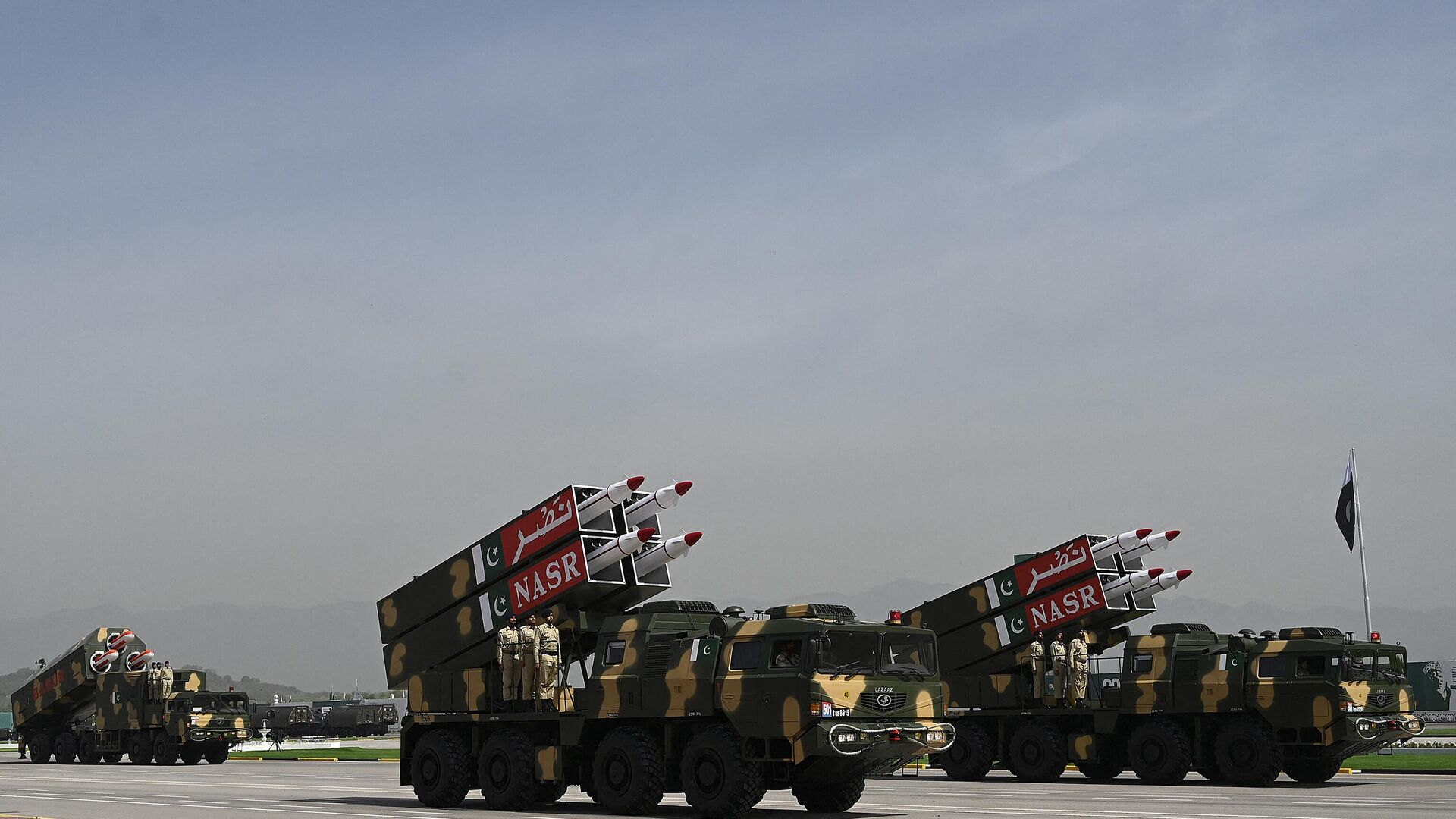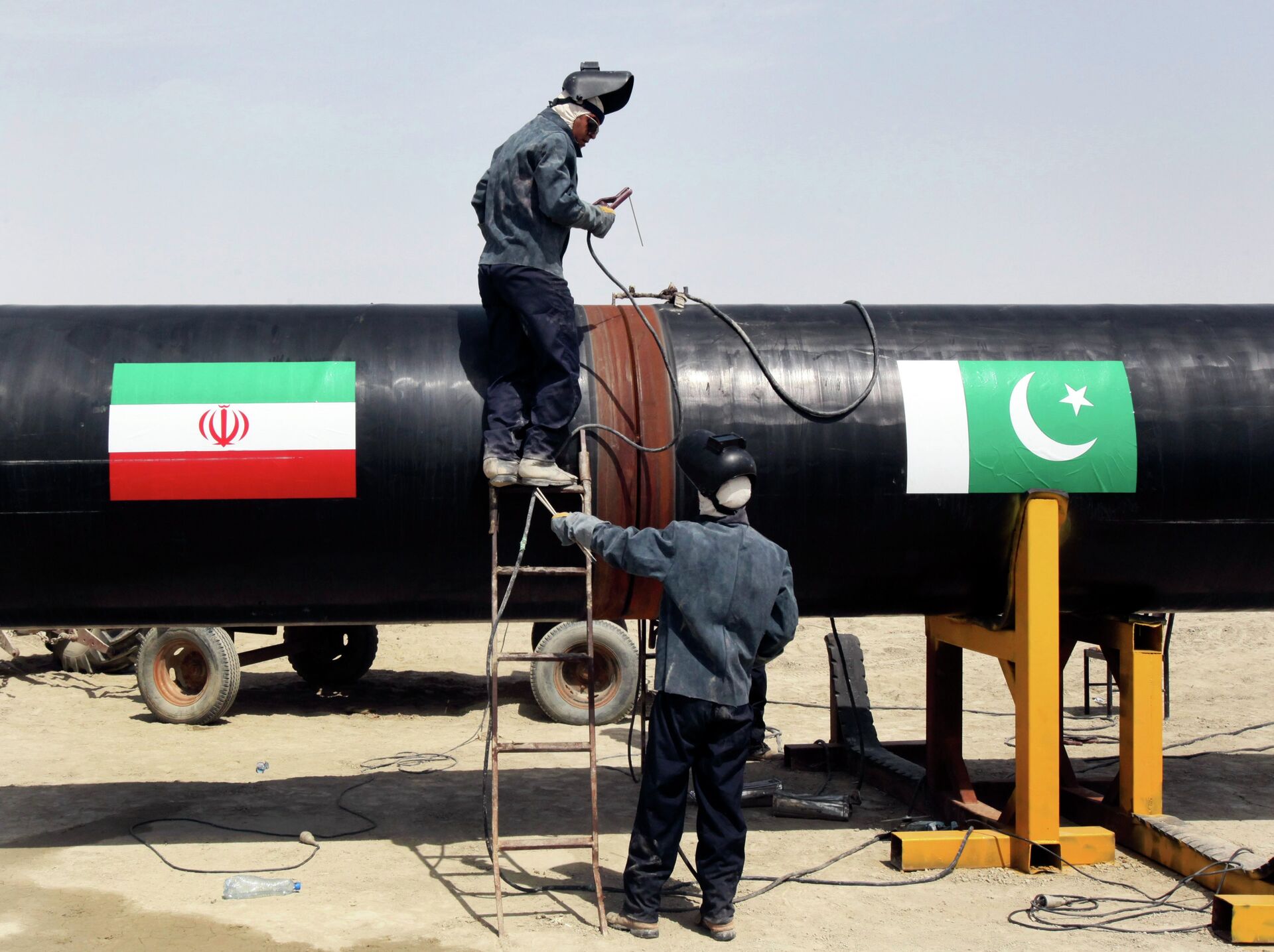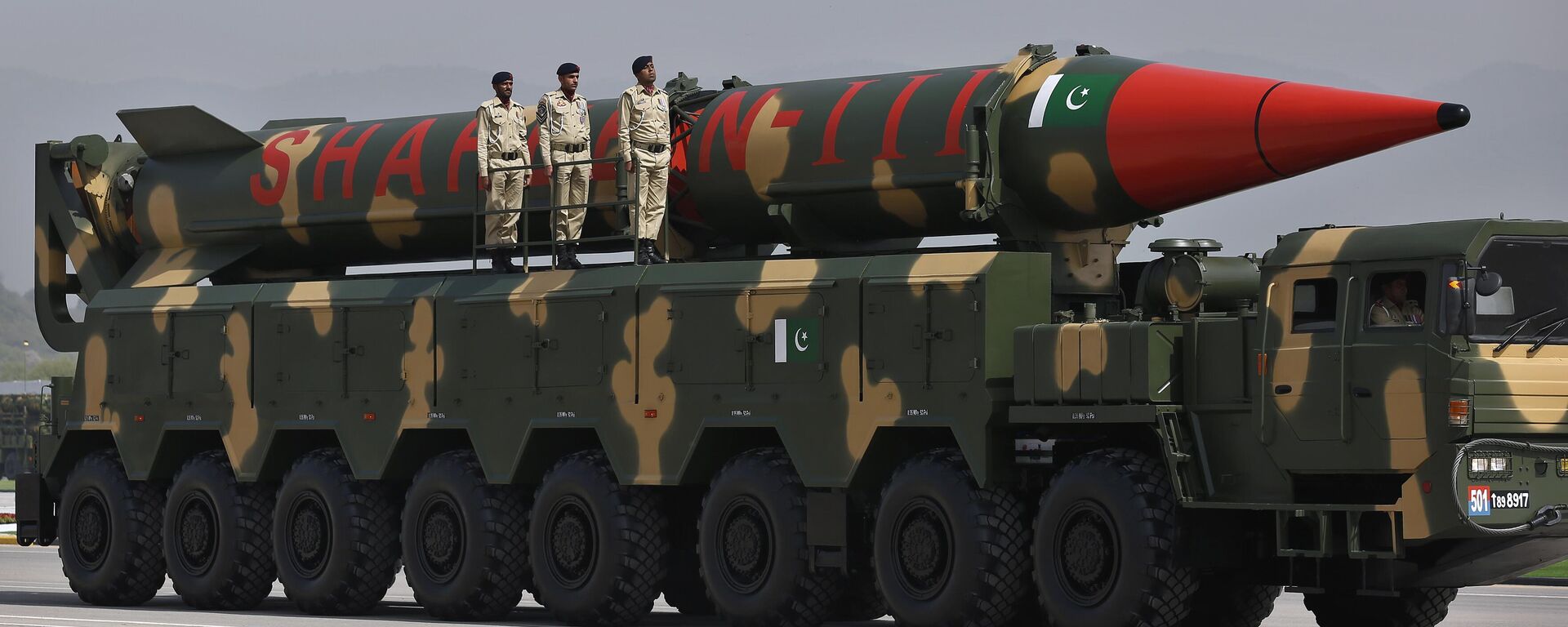https://sputniknews.in/20240122/iran-sees-us-as-the-problem-not-pakistan-experts-6296942.html
Why Didn't Iran & Pakistan Rush Into Nuclear War?
Why Didn't Iran & Pakistan Rush Into Nuclear War?
Sputnik India
Tensions between Tehran and Islamabad soured following tit-for-tat military strikes last week. However, both nations have since emphasized the need to... 22.01.2024, Sputnik India
2024-01-22T21:16+0530
2024-01-22T21:16+0530
2024-01-23T11:47+0530
iran
pakistan
india
mossad
pakistan army
european union (eu)
sputnik opinion
political crisis
political controversy
missile strike
https://cdn1.img.sputniknews.in/img/07e8/01/17/6299989_0:320:3072:2048_1920x0_80_0_0_9567a6082c258181c9d6044687cf015a.jpg
Amid a week of hostilities between neighbors Iran and Pakistan, two geopolitical experts have stressed that Islamabad isn't a problem for Iran, rather America is. The comments from Iranian international relations analyst Ehsan Safarnejad and Dr Premanand Mishra, a professor at the New Delhi-based Jamia Milia Islamia (JMI) university come amid an easing of tensions between the two neighboring states.In one example on Sunday, Iran announced that its strategically located Chabahar port was ready to open its doors for trade with Pakistan.Iran Probably Pakistan's Only Reliable NeighbourSafarnejad told Sputnik India that, "Looking at the history, the outcome [of de-escalation] wasn't shocking. Iran was the first country to recognize Pakistan's independence and also supported it during the 1971 Indo-Pak war."On the other hand, Mishra noted that Iran sees the US as their main rival followed by Israel rather than Pakistan.Why Were Missiles Strikes Conducted After All?Mishra pointed out that for a long time, Iran has been asking Pakistan to handle the Baloch insurgency it is seeing at its border.He stated that the Iran-Pakistan border spans 909 km, with 9 million ethnic Balochs residing on each side. The academic expressed that Balochs face challenges like economic deprivation, and Iran claims insurgents cross the border, leading to tensions inside its territory. The two countries have previously collaborated to combat the Baloch insurgency; nevertheless, tensions persist as each side accuses the other of harboring and supporting terrorists.Mishra reckoned that it left Pakistan in a position where it had no option other than retaliating to draw a red line on Iranian action into its territory as Pakistan was already under a spell of political instability and economic turmoil. Pakistan, too, has to undergo a national election on February 14.Iran has been under economic sanctions since 1979 for various reasons led by the US-led Western bloc, including the European Union.
https://sputniknews.in/20240119/west-is-only-beneficiary-from-iran-pakistan-escalation-6257870.html
iran
pakistan
india
balochistan
middle east
us
Sputnik India
feedback.hindi@sputniknews.com
+74956456601
MIA „Rossiya Segodnya“
2024
Deexa Khanduri
https://cdn1.img.sputniknews.in/img/07e6/0c/13/138923_52:0:533:481_100x100_80_0_0_cadf23d341691fc65ff2b22fd1afe584.jpg
Deexa Khanduri
https://cdn1.img.sputniknews.in/img/07e6/0c/13/138923_52:0:533:481_100x100_80_0_0_cadf23d341691fc65ff2b22fd1afe584.jpg
News
en_IN
Sputnik India
feedback.hindi@sputniknews.com
+74956456601
MIA „Rossiya Segodnya“
Sputnik India
feedback.hindi@sputniknews.com
+74956456601
MIA „Rossiya Segodnya“
Deexa Khanduri
https://cdn1.img.sputniknews.in/img/07e6/0c/13/138923_52:0:533:481_100x100_80_0_0_cadf23d341691fc65ff2b22fd1afe584.jpg
pakistan, operations, "terrorist hideouts, pakistani foreign ministry, deputy governor, alireza marhamati, iranian southeastern province of sistan and baluchestan, saravan county, iran-pakistan border, military strikes, marg bar sarmachar', islamic revolutionary guard corps (irgc), ballistic missiles, drones, jaish al-adl, balochistan region of pakistan, iranian territory, iranian armed forces conducted a missile strike, pakistani soil, diplomatic activities, islamabad, pakistan, saudi arabia, baluchistan, sistan-baluchestan region, vulnerabilities, strategic consideration, iran, middle east conflict, western nations, palestinian, ttp, chabahar port
pakistan, operations, "terrorist hideouts, pakistani foreign ministry, deputy governor, alireza marhamati, iranian southeastern province of sistan and baluchestan, saravan county, iran-pakistan border, military strikes, marg bar sarmachar', islamic revolutionary guard corps (irgc), ballistic missiles, drones, jaish al-adl, balochistan region of pakistan, iranian territory, iranian armed forces conducted a missile strike, pakistani soil, diplomatic activities, islamabad, pakistan, saudi arabia, baluchistan, sistan-baluchestan region, vulnerabilities, strategic consideration, iran, middle east conflict, western nations, palestinian, ttp, chabahar port
Why Didn't Iran & Pakistan Rush Into Nuclear War?
21:16 22.01.2024 (Updated: 11:47 23.01.2024) Deexa Khanduri
Sputnik correspondent
Tensions between Tehran and Islamabad soured following tit-for-tat military strikes last week. However, both nations have since emphasized the need to de-escalate after talks between Pakistani Foreign Minister Jalil Abbas Jilani and his Iranian counterpart Hossein Amir-Abdollahian.
Amid a week of hostilities between neighbors Iran and Pakistan, two geopolitical experts have stressed that Islamabad isn't a problem for Iran, rather America is.
The comments from Iranian international relations analyst Ehsan Safarnejad and Dr Premanand Mishra, a professor at the New Delhi-based Jamia Milia Islamia (JMI) university come amid an easing of tensions between the two neighboring states.
In one example on Sunday, Iran announced that its strategically located Chabahar port was ready to open its doors for trade with Pakistan.
"The strategic port of Chabahar is ready for the development of trade between Iran and Pakistan, in this regard, it has adequate loading and unloading equipment, and vessels with a displacement of 120,000 tons can be moored at this port," an official Iranian statement read.
Iran Probably Pakistan's Only Reliable Neighbour
Safarnejad told Sputnik India that, "Looking at the history, the outcome [of de-escalation] wasn't shocking. Iran was the first country to recognize Pakistan's independence and also supported it during the 1971 Indo-Pak war."
"Despite grievances that Iran has, vis-à-vis actions like Pakistan's support of the Taliban and some other groups, the two countries are probably each other's more reliable neighbors, considering the tensions that Pakistan has with India and Israeli Mossad's malign activities in Azerbaijan and Kurdistani region of Iraq. To sum it up, both countries have bigger fish to fry," he explained.
On the other hand, Mishra noted that Iran sees the
US as their main rival followed by
Israel rather than Pakistan.
Why Were Missiles Strikes Conducted After All?
Mishra pointed out that for a long time, Iran has been asking Pakistan to handle the Baloch insurgency it is seeing at its border.
He stated that the Iran-Pakistan border spans 909 km, with 9 million ethnic Balochs residing on each side.
The academic expressed that Balochs face challenges like economic deprivation, and Iran claims insurgents cross the border, leading to tensions inside its territory. The two countries have previously collaborated to combat the Baloch insurgency; nevertheless, tensions persist as each side accuses the other of harboring and supporting terrorists.
"I believe that Iran's decision to strike was guided by an internal pressure on the need to flex its military muscle to deter further
targeted killings of its senior army commanders and strikes against its allies in the region," Mishra highlighted. "Plus, the Iranian government also made the whole issue a national security issue, given that it has parliamentary elections coming up in six weeks."
Mishra reckoned that it left Pakistan in a position where it had no option other than retaliating to draw a red line on Iranian action into its territory as Pakistan was already under a spell of political instability and economic turmoil. Pakistan, too, has to undergo a national election on February 14.
"Iran believes that Americans are the root cause of the problems across the world, and the US believes that Iran is the root cause of the
problems in the region," he added.
Iran has been under economic sanctions since 1979 for various reasons led by the US-led Western bloc, including the European Union.
"Iran has to send a more significant message to the world that it is surviving and doing good even during sanctions," Mishra concluded.




